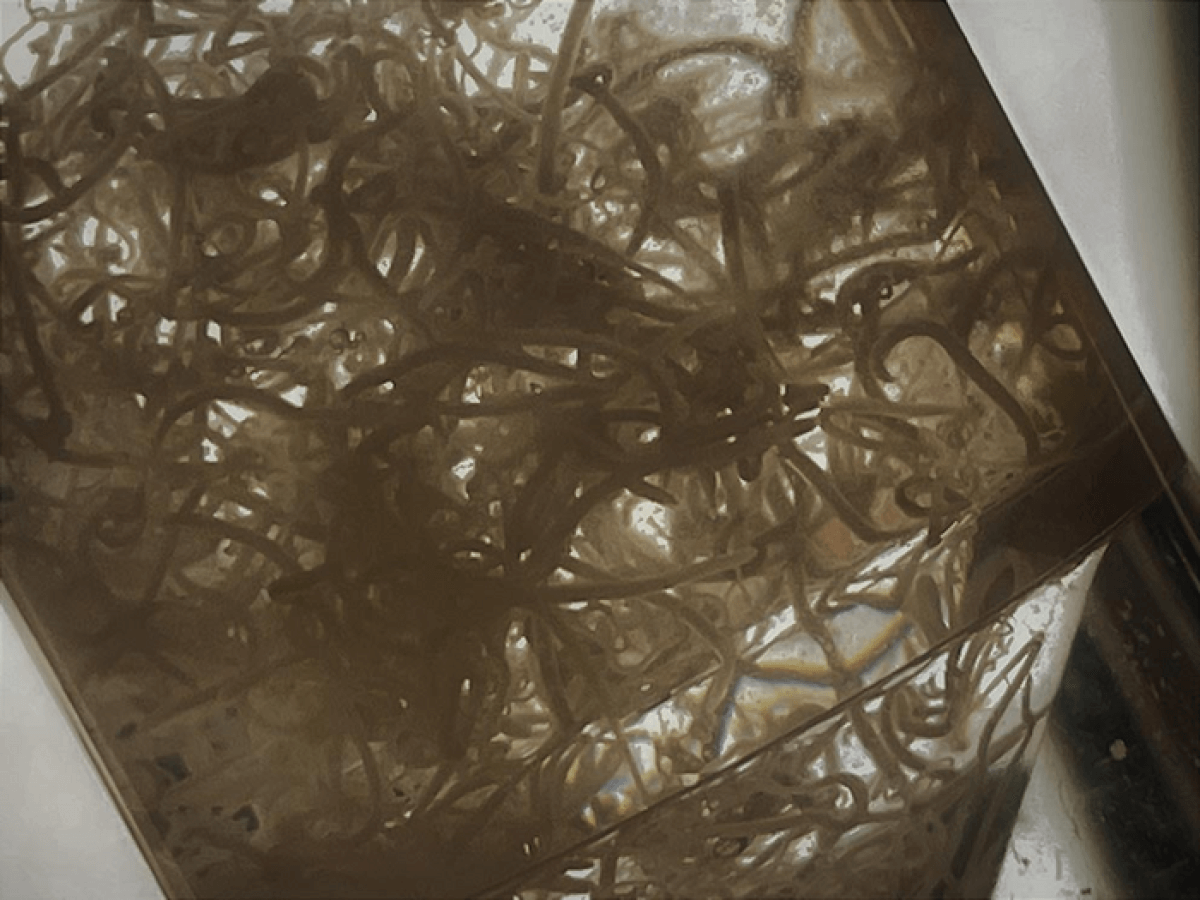LANCASTER, United Kingdom — Scientists in the United Kingdom have a surprising (and appetizing) way of getting rids of worms — junk food. Their study finds a high-fat diet allows the immune system to rid itself of parasites, which is a leading cause of sickness and death in the developing world.
Parasitic worms impact the lives of up to a billion people globally, specifically those dealing with poor sanitation and access to hygienic products. One of these parasites, called “whipworm,” lives in the human intestine and causes an infection called trichuriasis. This infection damages the large intestine and can lead to abdominal pain, nausea, vomiting, headaches, and even bloody stool.
In Western nations, high-fat diets are pretty common. Despite that, how the typical “Western diet” interacts with worm infections is still unclear. A team from Lancaster University and the University of Manchester set out to answer the question.
“In order to be able to study how nutrition affects parasite worm infection, we have been using a mouse model, Trichuris muris, closely related to the human whipworm Trichuris trichiura and seeing how a high-fat diet impacts immunity,” says lead author Dr. Evelyn Funjika, formerly at Manchester and now at the University of Zambia, in a media release.

Fatty foods boost immune cells that attack worms
Previously, evidence has suggested that immune responses that expel the parasite lean on white blood cells called T-helper 2 cells for help. They are designed to knock out parasites in the digestive system. This study shows that a high-fat diet — not to be confused with being obese — increases a molecule on these helper cells called ST2, heightening the T-helper 2 response to rid parasitic worms from the large intestinal tract. This is contrary to popular belief that high-fat diets are always harmful or detrimental to health.
“We were quite surprised by what we found during this study. High-fat diets are mostly associated with increased pathology during disease. However, in the case of whipworm infection this high fat diet licenses the T-helper cells to make the correct immune response to expel the worm,” says Dr. John Worthington from the Department of Biomedical and Life Science at Lancaster University.
Although these findings can’t be directly translated to suggest that weight plays an active role, other studies have reported that maintaining a healthy weight can support the body in fighting against parasites as well.
“Before you order that extra take-away, we have previously published that weight loss can aid the expulsion of a different gut parasite worm. So these results may be context specific, but what is really exciting is the demonstration of how diet can profoundly alter the capacity to generate protective immunity and this may give us new clues for treatments for the millions who suffer from intestinal parasitic infections worldwide,” Dr. Worthington concludes.
The findings are published in the journal Mucosal Immunology.

